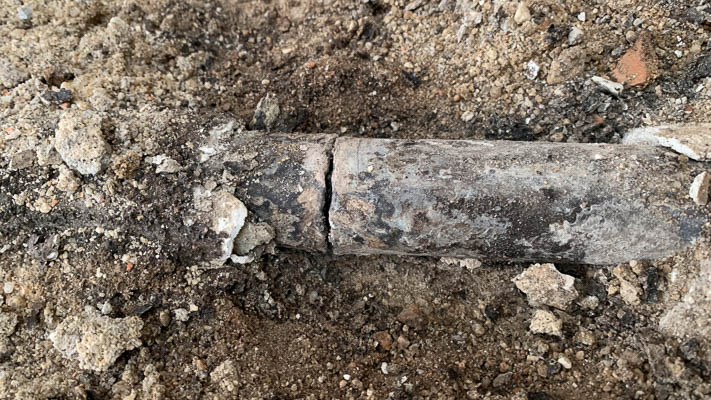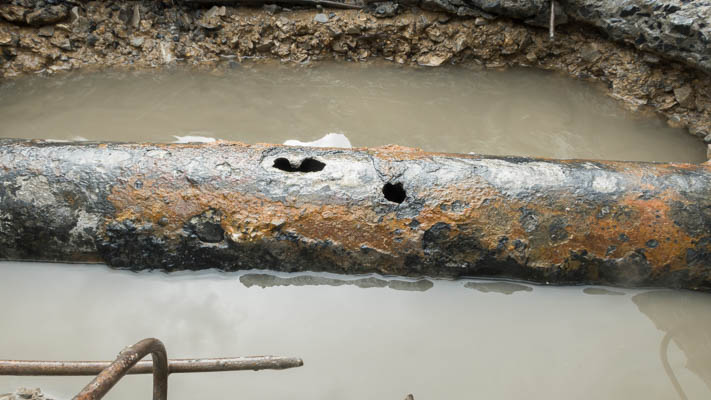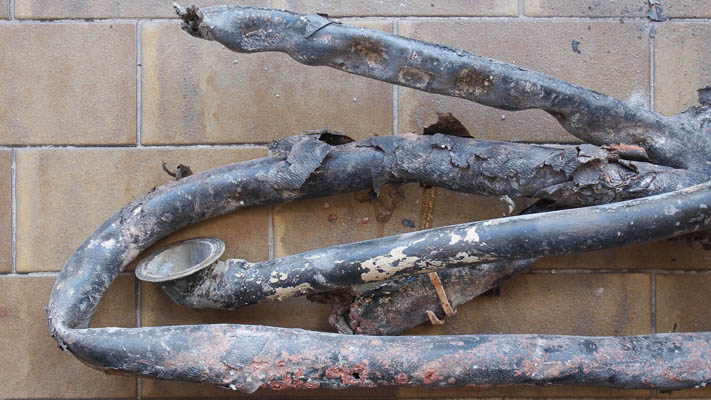Are Lead Pipes Still Used?
While new installations of lead pipes are banned in the United States, many older homes and municipal water systems still rely on existing lead pipes (particularly those built before the 1980s).
According to the Environmental Protection Agency (EPA), over 9 million lead service lines still deliver water to homes across the country. So while lead pipes are no longer installed, they are unfortunately still in use in millions of properties.

The Safe Drinking Water Act of 1986 prohibited the use of lead in pipes and plumbing materials, but it didn't require replacement of existing infrastructure.
Even with updated plumbing codes, the challenge lies in the cost and logistics of replacing buried service lines and interior piping. Many municipalities are slowly working to eliminate lead from their systems, but it's a long-term effort.
This makes it crucial for homeowners to take the initiative to inspect and, if necessary, replace lead components in their own homes.
What Do Lead Pipes Look Like?
Identifying lead pipes isn't always straightforward, but there are a few key signs to look for. Lead pipes typically have a dull gray color and are very soft. You can often scratch them with a coin to try and identify them.
Here's a quick checklist for identifying potential lead pipes in your home:
- Color and Texture: Lead pipes are matte gray and smooth, with a slightly greasy feel.
- Scratch Test: If you scratch the pipe and it reveals a shiny, silver-like surface underneath, it could be lead.
- Magnet Test: Lead pipes will not respond to a magnet, unlike steel or iron.
- Fittings and Joints: Lead pipes often have bulb-shaped joints known as "wiped" joints, which look different from modern fittings.
If you suspect your pipes are lead, it is important to act fast. A licensed plumber can perform a professional inspection and water test to confirm whether lead is present in your plumbing system.
You can also use an at-home lead water test kit like the PRO-LAB Lead Surface Test Kit. We also have a list of the best lead test kit for plumbing.

Lead pipes are rare in most homes across the country; however, galvanized steel pipes are still commonly used and can be mistaken for lead. If you're concerned about the possibility of galvanized plumbing, you can read our article about what galvanized pipes are and why they need replacing.
How to Remove Lead In Water
If testing confirms lead in your water supply, it's important to take action quickly. As we saw during the Flint Michigan water crisis in 2014, long-term exposure to even low levels of lead can cause serious health issues, particularly in children and pregnant women.
Here are some short-term fixes to reduce your risk:
- Use a Certified Water Filter: While you're considering or preparing for a repipe, it's a good idea to install a water filter certified to remove lead (look for NSF/ANSI Standard 53 or 58). These can be attached to individual taps or used in pitchers. Be sure to change the filters regularly according to manufacturer instructions.
- Flush Your Pipes: Running your tap water for a few minutes before use (especially if it's been sitting overnight) can help clear out water that has been in contact with lead pipes. Always use cold water for drinking and cooking, as hot water dissolves lead more easily.
- Schedule a Professional Water Test: Whether or not you're certain lead is present, a professional water test can help you understand your next steps. Many local water utilities offer free or discounted testing services. Ultimately, no filter or workaround can match the peace of mind that comes with removing lead pipes entirely. If you're looking for a lasting solution that protects your family's health for years to come, a full home repipe is the best step forward.
Combine Repipe With Water Filtration Systems
Replacing old lead pipes with modern, lead-free materials like PEX tubing or copper pipe is the most effective way to eliminate lead contamination from your water system.
A full home repipe not only removes the health risks associated with lead but also enhances water flow, prevents future leaks, and reduces the risk of corrosion.
To further protect your family and ensure the highest quality of drinking water, pairing your repipe with a certified water filtration system is a smart choice. While a repipe removes the source of contamination, a water filtration system can provide additional protection against any residual impurities that may linger in your system after the repiping process.
This combination offers a long-term solution for safe, clean water throughout your home. Our full home repipes can easily be completed in just 1-2 days with minimal disruption, making it a worthwhile upgrade to the health and safety of your home.
Get your free estimate today
With over 75,000 repipes completed, we've perfected our One-Stop Repipe™ for your home.
Get a Quote for Your Home Repipe
Here at Repipe Specialists, we've fully replaced the plumbing in over 75,000 homes since 1991 using both copper piping and PEX tubing. We continually get positive customer feedback from customers about their overall home repipe experiences. We often exceed their expectations on:
- Speed: Our repipe crews typically complete a repipe in a day, returning on another day for wall patching.
- Convenience: Through our One-Stop Repipe™ Process, we handle everything from permits, to wall patching, to inspections.
- Cleanliness: Our crews are trained to protect your home while working (we cover all surfaces with protective sheeting), and to clean up fully at the end of each day.
- Peace of Mind: Repipe Specialists is a fully licensed plumber in every state we operate in, and we back all of our repipes with a lifetime warranty.
- Financing programs: To help take the sting out of unplanned repipe expenses, we offer several financing programs.
- Price: As a specialist that performs hundreds of repipes a week, we can deliver high quality repipes at a lower cost vs generalist plumbers. We have an article that covers repipe cost factors in detail. Our quotes typically range from $4,500 to $15,000 depending on the size and complexity of your project.
Schedule a free in-home consult, and one of our local repipe consultants will explain all your repipe options and provide you with a written, fixed-price quote. Use non-lead pipes, repipe now.

